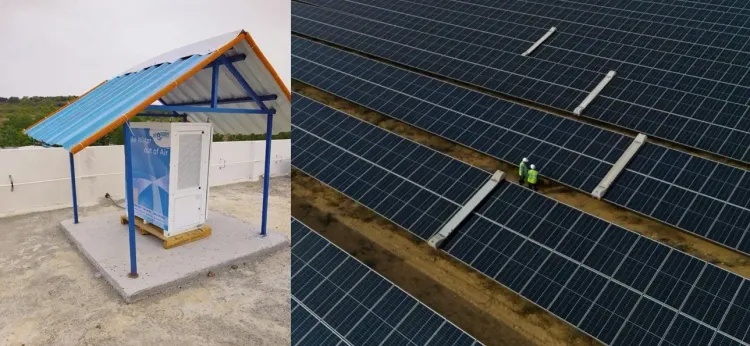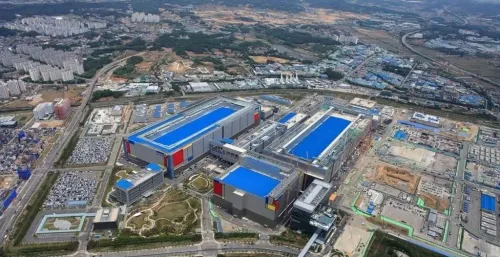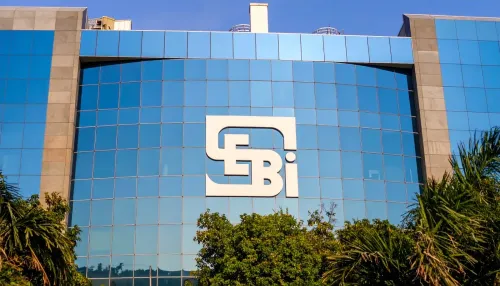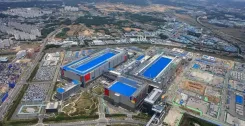Adani Green Energy Sets Goal for Net Water Positivity by FY2025-26

Synopsis
Key Takeaways
- Commitment to net water positivity by FY2025-26.
- Implementation of robotic cleaning to minimize freshwater use.
- Reduction of water consumption across operational sites.
- Community engagement and rainwater harvesting initiatives.
- ISO 14001:2015 certification for effective water management.
Ahmedabad, March 16 (NationPress) Adani Green Energy, the leading renewable energy company in India, announced its commitment to achieving net water positivity by the fiscal year 2025-26. This initiative focuses on minimizing freshwater consumption across all operational activities.
The firm has already attained water positivity at operational sites with capacities exceeding 200 MW in FY23. Furthermore, it plans to employ robotic cleaning technologies to eliminate the use of freshwater for solar panel cleaning at future facilities.
Significant water is essential in the renewable energy sector for activities such as maintaining solar panels.
Adani Green Energy, boasting over 12.5 GW of operational assets, is at the forefront of water stewardship.
The company’s strategy to achieve sustainable water use includes various initiatives such as rainwater harvesting, water conservation, and engaging with local communities.
It has successfully reduced its water use intensity and has actively contributed to replenishing water resources in areas experiencing water scarcity, including Khavda, Jaisalmer, and Kutch.
Last year, the company managed to save 347,310 kilolitres of water through robotic cleaning—equivalent to the water needs of 1.58 million households.
Approximately 43.5 percent of Adani Green Energy’s operational capacity has integrated robotic technology for cleaning photovoltaic (PV) modules.
“Adani Green Energy’s ISO 14001:2015 certification ensures a robust system to monitor and manage water usage, establishing a solid foundation for achieving net water positivity by FY2025-26,” stated the company.
By adopting waterless robotic cleaning methods, Adani Green Energy aims to minimize water requirements for cleaning solar PV modules. As of FY24, 4,760 MW of its solar plants have effectively integrated robotic cleaning technology.
To eliminate the reliance on plastic bottled water for drinking needs, Adani Green has introduced technology that extracts water from humidity in the air using eco-friendly methods.
This innovative solution yields fresh, hygienic drinking water that meets international safety standards while also reducing plastic use and lowering carbon emissions.
“A proof-of-concept (POC) was tested at our Solar Plant in Andhra Pradesh, capable of generating 100 LPD (litres per day) along with a water cooler, resulting in substantial savings with a payback period of five to six years. We plan to replicate this technology after evaluating its success,” the company shared.
In addition, the pond rejuvenation project enhances the water retention capacity of ponds, improving groundwater recharge and overall water levels. Adani Green Energy has de-silted and revitalized 35 ponds in FY24, benefiting over 36,000 people in nearby villages.
AGEL's operational portfolio is recognized as water positive for plants exceeding 200 MW capacity, single-use plastic free, and zero waste-to-landfill, showcasing the company’s commitment to sustainable advancement.









